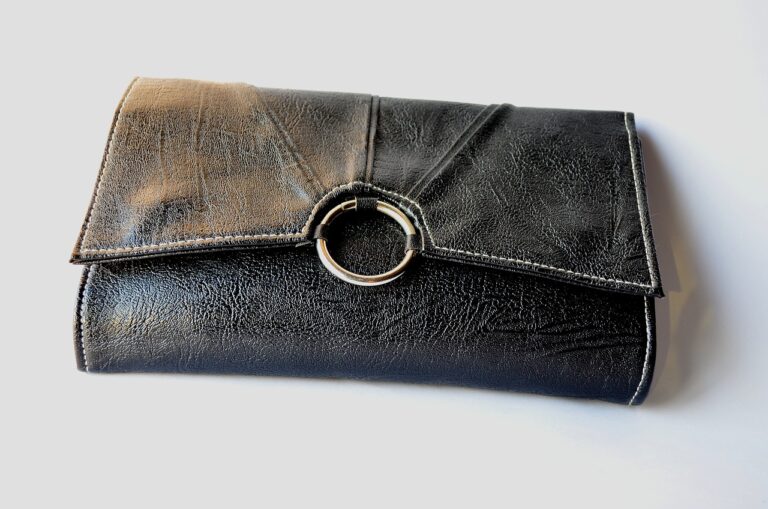The Role of Sustainability Certifications in Fashion Industry: Silverexch com, Goldenexch create account, Betbook247 com login
silverexch com, goldenexch create account, betbook247 com login: The fashion industry has long been criticized for its negative impact on the environment and society. From textile waste to unethical labor practices, the industry has been called out for its unsustainable practices. In recent years, however, there has been a growing trend towards sustainability in fashion, with many brands seeking to minimize their environmental and social footprint. One of the ways in which brands can demonstrate their commitment to sustainability is through certifications.
Sustainability certifications in the fashion industry play a crucial role in ensuring that brands adhere to certain standards and practices that are environmentally and socially responsible. These certifications cover a wide range of issues, from the sourcing of materials to the treatment of workers in the supply chain. By obtaining these certifications, brands can demonstrate to consumers that they are serious about sustainability and are taking concrete steps to minimize their impact on the planet.
One of the most well-known sustainability certifications in the fashion industry is the Global Organic Textile Standard (GOTS). This certification ensures that textiles are produced in an environmentally and socially responsible manner, from the harvesting of raw materials to the labeling of the finished product. Brands that carry the GOTS certification can be trusted to use organic materials, to minimize their use of chemicals, and to treat their workers fairly.
Another important certification in the fashion industry is the Fair Trade certification. This certification guarantees that workers in the supply chain are paid a fair wage and are working in safe and ethical conditions. Brands that carry the Fair Trade certification demonstrate their commitment to social responsibility and to supporting marginalized communities around the world.
In addition to these certifications, there are many others that focus on specific aspects of sustainability, such as water usage, energy consumption, and waste management. By obtaining these certifications, brands can show that they are taking a holistic approach to sustainability and are committed to continuous improvement in all areas of their operations.
Overall, sustainability certifications play a crucial role in the fashion industry by providing consumers with a way to identify brands that are committed to sustainability. By choosing to support brands with these certifications, consumers can help drive positive change in the industry and encourage more brands to prioritize sustainability in their operations.
**The Benefits of Sustainability Certifications in Fashion Industry**
Sustainability certifications in the fashion industry offer a wide range of benefits, both for brands and for consumers. Some of the key benefits of these certifications include:
– **Transparency:** By obtaining a sustainability certification, brands demonstrate their commitment to transparency and accountability. Consumers can trust that brands with these certifications are meeting certain standards and are being held accountable for their actions.
– **Credibility:** Sustainability certifications provide brands with credibility in the eyes of consumers. By carrying these certifications, brands can differentiate themselves from competitors and attract environmentally and socially conscious consumers.
– **Market Access:** Some certifications, such as the GOTS certification, are required for brands to access certain markets, such as the European Union. By obtaining these certifications, brands can expand their market reach and tap into new opportunities.
– **Risk Mitigation:** Sustainability certifications help brands mitigate risks related to environmental and social issues. By following certain standards and practices, brands can reduce the likelihood of negative impacts on the environment and society.
– **Continuous Improvement:** Sustainability certifications encourage brands to engage in continuous improvement and to invest in sustainable practices. By obtaining these certifications, brands commit to ongoing monitoring and evaluation of their operations.
Overall, sustainability certifications in the fashion industry offer a wide range of benefits for brands, consumers, and society as a whole. By choosing to support brands with these certifications, consumers can help drive positive change in the industry and promote a more sustainable future.
**How to Identify Sustainable Fashion Brands**
Identifying sustainable fashion brands can be a challenging task, given the vast amount of information and greenwashing in the industry. However, there are a few key factors to consider when looking for brands that prioritize sustainability:
– Look for certifications: One of the easiest ways to identify sustainable fashion brands is to look for certifications, such as GOTS, Fair Trade, and OEKO-TEX. Brands that carry these certifications have been independently verified to meet certain standards of sustainability.
– Check the brand’s website: Many sustainable fashion brands have dedicated sections on their websites to highlight their sustainability efforts. Look for information on the brand’s sourcing practices, production methods, and commitment to ethical labor.
– Read reviews and ratings: Consumers are increasingly vocal about their support for sustainable fashion brands. Look for reviews and ratings from other consumers to get a sense of how a brand is perceived in terms of sustainability.
– Ask questions: Don’t be afraid to reach out to brands directly to ask about their sustainability practices. Brands that are committed to sustainability will be transparent and open to answering questions about their operations.
By keeping these factors in mind, consumers can make more informed choices when shopping for sustainable fashion brands and support brands that are committed to minimizing their environmental and social footprint.
**The Future of Sustainability in Fashion Industry**
The future of sustainability in the fashion industry looks promising, as more brands and consumers recognize the importance of environmental and social responsibility. As awareness around sustainability grows, so too does the demand for sustainable fashion brands and products.
Many brands are embracing sustainability certifications as a way to demonstrate their commitment to sustainability and to differentiate themselves in a crowded market. By obtaining these certifications, brands can build trust with consumers and showcase their efforts to minimize their impact on the planet.
Additionally, technological advancements are enabling brands to adopt more sustainable practices, such as using recycled materials, optimizing production processes, and reducing waste. With the rise of eco-friendly innovations, brands have more tools than ever to create sustainable fashion products that are both stylish and planet-friendly.
As consumers continue to prioritize sustainability in their purchasing decisions, brands will be incentivized to invest in sustainable practices and prioritize transparency in their operations. By supporting brands that are committed to sustainability, consumers can drive positive change in the fashion industry and help create a more sustainable future for all.
**FAQs**
1. What are sustainability certifications in the fashion industry?
Sustainability certifications in the fashion industry are independent verifications that brands meet certain standards of environmental and social responsibility. These certifications cover a wide range of issues, from sourcing of materials to treatment of workers in the supply chain.
2. Why are sustainability certifications important in the fashion industry?
Sustainability certifications are important in the fashion industry because they provide consumers with a way to identify brands that are committed to sustainability. By choosing to support brands with these certifications, consumers can drive positive change in the industry and encourage more brands to prioritize sustainability.
3. How can consumers identify sustainable fashion brands?
Consumers can identify sustainable fashion brands by looking for certifications, checking the brand’s website for sustainability information, reading reviews and ratings, and asking questions directly to brands about their sustainability practices.
4. What is the future of sustainability in the fashion industry?
The future of sustainability in the fashion industry looks promising, as more brands and consumers recognize the importance of environmental and social responsibility. Technological advancements are enabling brands to adopt more sustainable practices, and consumers are increasingly prioritizing sustainability in their purchasing decisions. By supporting brands that are committed to sustainability, consumers can help create a more sustainable future for all.







